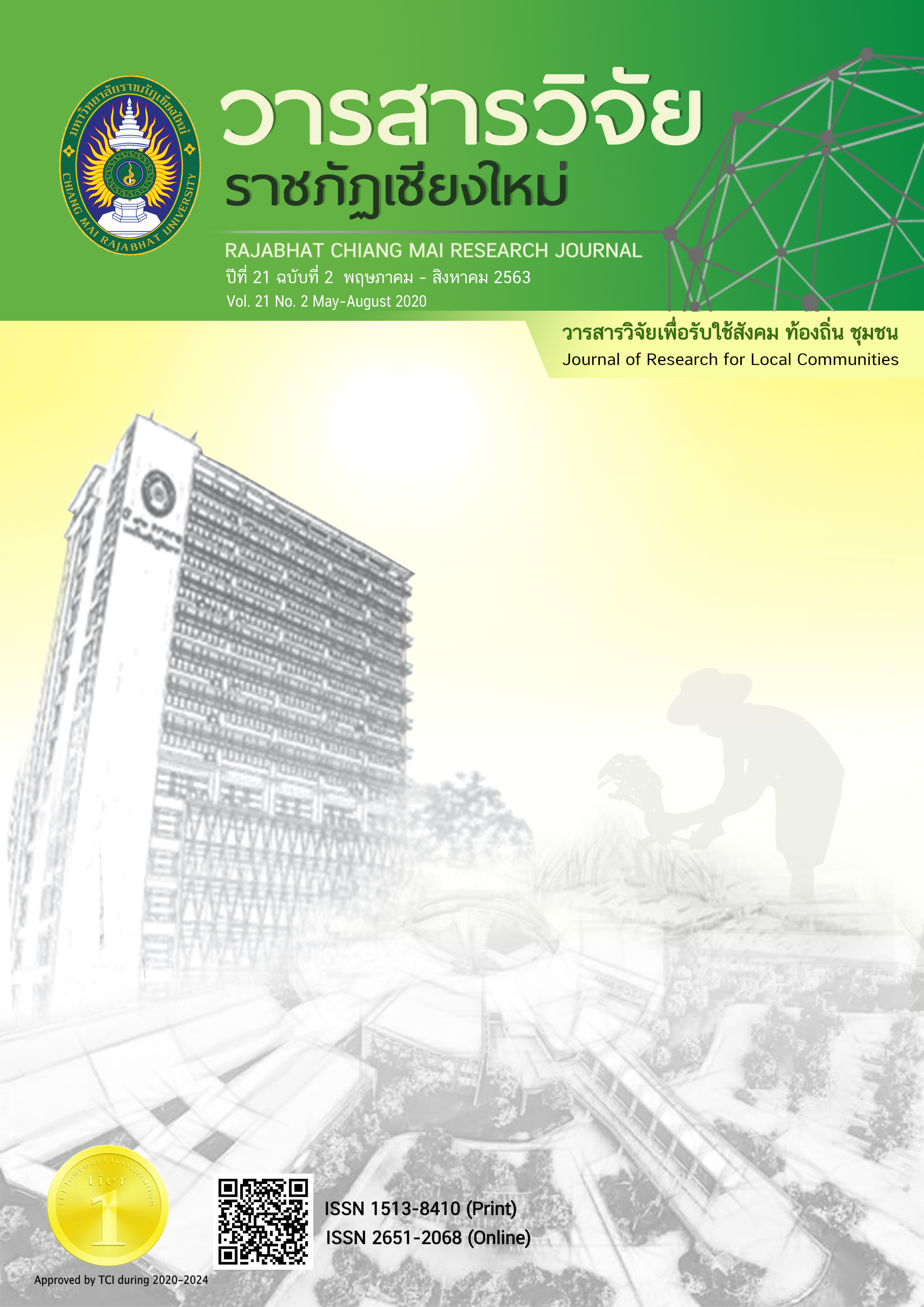The Impact of Macroeconomic Determinants on Small and Medium Enterprises in Chon Buri Province
DOI:
https://doi.org/10.14456/rcmrj.2020.239907Keywords:
Small and medium enterprise, Macroeconomic determinants, Three–stage least squaresAbstract
This study aimed to determine the impacts of macroeconomic determinants on small and medium enterprises in Chon Buri province. The study applied an econometric model using time series data collected from 1st quarter 2008 to 3rd quarter 2019, totally 47 quarters, which were analyzed by three-stage least squares (3SLS) method.
According to the estimated regression model, it was found that factors affecting medium enterprise in Chon Buri province at a statistical significance level of .10 were minimum retail rate, policy rate, economic index, consumer confidence index, and public policy for small and medium enterprise. In addition, factors affecting small enterprise in Chon Buri province at a statistical significance level of .10 were private investment Index, policy rate, economic index, consumer confidence index, and public policy for small and medium enterprise. Policy makers can use the results of this study to evaluate the impact of macroeconomic determinants on small and medium enterprises in Chon Buri province and apply for forecasting. It can also be extended for use as a guideline for planning and control to obtain the optimal level of small and medium enterprises which will help the economy at the community level to be developed to the national level.
Downloads
References
Beisland, L. A., Mersland, R., & Zamore, S. (2016). Motivations for Business Startup: Are There any Differences Between Disabled and NonDisabled Microfinance Clients. Journal of International Development, 28(1), 147-149.
Chen, G. S., Yao, Y., & Malizard, J. (2017). Does Foreign Direct Investment Crowd in or Crowd Out Private Domestic Investment in China? The Effect of Entry Mode. Economic Modelling.
Khermkham, J. (2012). The Application of Logit, Probit Models and Multiple Discriminant Analysis in Predicting the Failure of SMEs in Northeastern Region of Thailand. Master Thesis of Economics, M.Econ, Business Economics Khon Kaen University. (In Thai)
Kittinararat, C. (2018). The Influence of the Management System, Marketing Strategy, and Sufficiency Economy Philosophy-Based Implementation on the Sustainable Success of Handicraft Community Business Entrepreneurs in the Central Region of Thailand. Journal of Economics and Management Strategy, 5(2), 33-50. (In Thai)
Munemo, J. (2017). Foreign Direct Investment and Business Start-Up in Developing Countries: The Role of Financial Market Development. The Quarterly Review of Economics and Finance, 65(2), 97-106.
Office of Small and Medium Enterprise Promotion (OSMEP). (2019). SME Situation Report.
Retrieved from https://www.sme.go.th/th/download.php?modulekey=215 (In Thai)
Sucharidtham, T. (2018). Factors Affecting Decisions to Register New Industrial Business. The Journal of King Mongkut's University of Technology North Bangkok, 28(1), 229-241. (In Thai)
Tadeu, H. F. B., & Silva, J. T. M. (2013). The Determinants of the Long Term Private Investment in Brazil: An Empirical Analysis Using Cross-Section and a Monte Carlo Simulation. Journal of Economics Finance and Administrative Science, 18(2), 11-17.
Downloads
Published
How to Cite
Issue
Section
License
1. Articles, information, content, images, etc published in the “Community and Social Development Journal” are copyrighted by the Community and Social Development Journal, Chiang Mai Rajabhat University. In order to properly distribute the articles through print and electronic media, the authors still hold the copyright for the published articles under the Creative Commons Attribution (CC BY) license, which allows the re-distribution of the articles in other sources. References must be made to the articles in the journal. The authors are responsible for requesting permission to reproduce copyrighted content from other sources.
2. The content of the articles appearing in the journal is the direct responsibility of the article authors. The editorial board of the journal does not necessarily agree with or share any responsibility.














